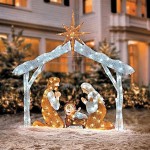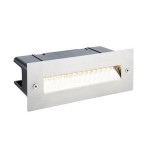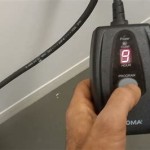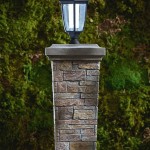Can PVC Conduit Be Used Outdoors Above Ground?
PVC conduit, known for its durability and ease of installation, is a popular choice for electrical wiring. But can it be used outdoors above ground? The answer is yes, but with some important considerations. PVC conduit is generally suitable for outdoor use, even above ground, but certain factors require careful attention to ensure its longevity and safe operation.
UV Resistance and Sun Exposure
One of the primary concerns regarding PVC conduit for outdoor use is its susceptibility to ultraviolet (UV) radiation from the sun. UV light weakens and degrades the PVC material over time, potentially leading to cracking, discoloration, and decreased structural integrity. While PVC conduit is typically manufactured with UV-resistant additives, these additives can degrade over several years, especially in regions with intense sunlight.
To minimize UV damage, PVC conduit installed outdoors should be:
- Painted with a UV-resistant paint.
- Covered with a protective sheath or conduit cover.
- Installed in locations that receive minimal direct sunlight.
Selecting a conduit with a higher UV resistance rating offers additional protection and extends its lifespan.
Temperature Fluctuations and Expansion
Outdoor environments are subject to significant temperature fluctuations. PVC conduit, like other materials, expands and contracts with temperature changes. This can affect the conduit's integrity, particularly if the conduit is tightly fitted or installed in a manner that restricts its expansion. PVC conduit is generally rated for a specific temperature range; exceeding this range can negatively impact its performance.
To mitigate the impacts of temperature fluctuations:
- Allow adequate expansion space when installing the conduit. This ensures the conduit can expand and contract without stressing the conduit or its connections.
- Consider using conduit fittings that are specifically designed to accommodate thermal expansion.
- Install conduit in locations that are not exposed to extremely high temperatures, such as areas directly under the sun or near heat sources.
Environmental Factors and Corrosion
Outdoor environments can expose PVC conduit to various environmental factors, including moisture, chemicals, and corrosive agents. While PVC is generally resistant to corrosion, prolonged exposure to certain chemicals or harsh environments can weaken the material.
When installing PVC conduit outdoors, it is essential to:
- Use conduit that is specifically manufactured for outdoor use and resistant to the chemicals and corrosive substances present in the environment.
- Ensure proper drainage to prevent water from accumulating inside the conduit.
- Avoid installing conduit near areas where it may be exposed to corrosive chemicals like fertilizers or pesticides.
Choosing the right PVC conduit and taking appropriate precautions reduces the risk of degradation due to environmental factors.
Code Requirements and Best Practices
Local building codes often specify the installation requirements for electrical conduit, both indoors and outdoors. It is crucial to consult these codes before installing PVC conduit outdoors above ground. Codes may specify the type of conduit, the permissible installation methods, and the required protection for the conduit and its contents.
General best practices for installing PVC conduit outdoors include:
- Using conduit with a high dielectric strength to ensure electrical insulation.
- Securing the conduit to the ground or support structures using appropriate clamps or hangers. This prevents movement and potential damage to the conduit.
- Ensuring that all connections are properly sealed and waterproof. This prevents moisture from entering the conduit and causing short circuits.
Following code requirements and best practices is vital for ensuring the safety and longevity of the electrical system.
In conclusion, PVC conduit can be used outdoors above ground, but proper considerations must be taken into account. Selecting UV resistant conduit, addressing temperature fluctuations, minimizing environmental exposure, and adhering to code requirements and best practices are critical for achieving safe and efficient outdoor electrical installations.

What Electrical Conduit To Use Outdoors Finnley

Upvc Outdoor Electrical Cable Flexible Conduit Above Ground China Made In Com

Upvc Outdoor Electrical Cable Flexible Conduit Above Ground China Made In Com

Running Power To An Outbuilding Fine Homebuilding

Schedule 40 For Exterior Recept Electrical Inspections Internachi Forum

Installing Conduits Outdoors Aerosusa

Stumped By The Code Ec M

Does An Outdoor Electrical Wire Need To Be In A Conduit 1st Electricians

Running Power To An Outbuilding Fine Homebuilding

Considerations For Exposed Conduit Champion Fiberglass
Related Posts







